




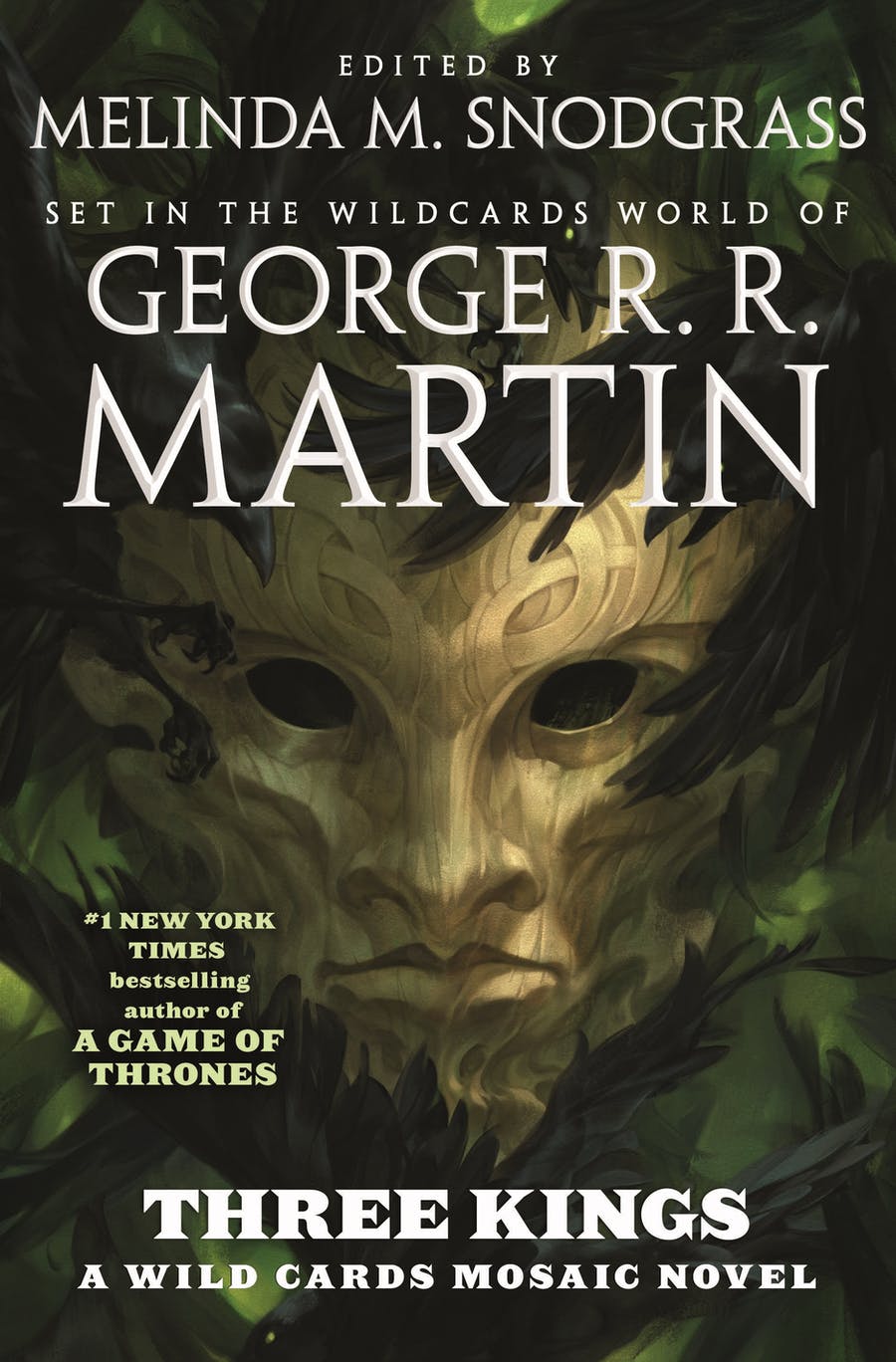 The next anthology in George R. R. Martin’s ongoing Wild Cards alternate-history series, Three Kings.
The next anthology in George R. R. Martin’s ongoing Wild Cards alternate-history series, Three Kings.
In the aftermath of World War II, the Earth’s population was devastated by an alien virus. Those who survived were changed forever. Some, known as jokers, were cursed with bizarre mental and physical mutations; others, granted superhuman abilities, became the lucky few known as aces.
Queen Margaret, who came to the English throne after the death of her sister Elizabeth, now lies on her death-bed. Summoning the joker ace Alan Turing, she urges him to seek the true heir: Elizabeth’s lost son. He was rumored to have died as a baby but, having been born a joker, was sent into hiding. Margaret dies and her elder son Henry becomes king and at once declares he wants to make England an “Anglo-Saxon country” and suggests jokers be sent “to the moon.” Dangerous tensions begin to tear the country apart. The Twisted Fists—an organization of jokers led by the Green Man—are becoming more militant. And Babh, goddess of war, sees opportunities to sow strife and reap blood…
Please enjoy this free excerpt of Three Kings edited by George R. R. Martin, on sale 03/15/2022.
Saturday
FEBRUARY 29TH
FASCINATING.
It should have been impossible to ambush Badb, goddess of war. Every crow in Belfast lent her their senses. She soared over a bleeding city, from one pocket of violence to the next. From the women shaving the head of a weeping collaborator to the screams of a man shot through the back of the knees. The city had half the population it should have had. Its buildings crumbled, paint flaking away except from slogans that every day were refreshed: NOT AN INCH!, BRITS OUT!, NO NATS HERE!
She had caused it all. Manipulating the angry; creating heroes and renewing herself through their sacrifice.
But she hadn’t expected this.
Three teenaged boys with hurley sticks caught her in an alleyway.
“Hand it over!” cried the nearest, his voice breaking mid-sentence. He had blond hair and a shamrock tattoo that might get him killed only three streets from here.
Behind him, a second boy, darker this time, pushed forward. “Yeah,” he cried. “We want all of it!” Despite the braggadocio, this was their first robbery. Badb could tell such things. Their knuckles were white on the wood of the hurls. Their Adam’s apples bobbed and bobbed.
“Let me get my purse.”
She really didn’t have time for this. Something was very wrong. She left her body, flicking from crow to crow, finding nearby streets to be far too quiet. No bombs went off. No snatch squads screeched out of police stations.
“Smash her, Paddy!” the second boy said as she returned to her body. “She’s delayin’. It’s on purpose.”
“I have it here,” Badb said, allowing a quiver of fear into her voice to make them feel more manly. “Please don’t hurt me!” She knew what they were seeing. An old, old woman. Which she was. With aching joints to slow her movements and additional indignities they couldn’t imagine—constant bleeding from cracks in her skin that only a layer of sopping bandages hid from view.
“Hit her, Paddy.”
But Paddy probably had a granny of his own at home, and a conscience too. “No,” he said, and licked his lips. “Not if she hands over the pension money. An Irishman keeps his word.”
Badb’s arthritic fingers got the purse open as the three boys crowded closer. Inside was a razor blade. With shaking hands, she drew it across Paddy’s throat. While he stared, amazed, still on his feet, she hobbled forward two more steps and got the second boy too.
Badb’s hips stabbed at her as she turned. She would need to regenerate very soon, or old age would leave her incapable of any movement at all.
By now the third boy was turning to flee. But she had a crow waiting. It swooped down from a nearby building, a missile of beak and black feathers, aimed straight at the teenager’s eyes . . .
And that’s when it happened. A pain such as the goddess had not felt in the longest time. A wrongness that jerked her out of her body and flung her awareness across the city to Sandy Row.
Disoriented, she tried to understand what had brought her here.
It had begun to drizzle. Boys and girls stood by the gable end of a house where patriotic hands had painted Queen Margaret on the day of her coronation. Badb watched the children from the eyes of one crow and then another until, suddenly, the gang sprang forward as one. A boy and a girl carried a net between them, she in sneakers, he in boots, the laces dangerously trailing.
What are they hunting? Badb wondered. But only for a second, because then, the net came down over the crow she occupied. She flicked to another bird and then, another, but they too had been caught. Other children smashed at the birds with planks of wood. With rocks. With the soles of their Doc Martens. The pain! The pain!
Half the flock escaped, and Badb with them. What was going on? Who had ever heard of such a thing? Even in this city where the spilling of blood had not slowed in fifty years?
Badb wheeled with the other crows, toying with the idea of sending the flock back to peck some manners into the children, but she knew better than to give herself away like that. Over the last decade she could count on two hands the number of people her flock had killed. Even so, the idea had leaked out into the city’s subconscious. “Crow” had become a slang term for treachery or for informers. Criminals and terrorists regularly warned each other to “keep your beak shut.”
She led the surviving birds over the Peace Wall between Sandy Row and Belfast’s jokertown, known locally as “the Island.”
They would be safe there, she felt sure, while she tried to figure out what was going on.
She returned to her body in the alleyway to find the third boy had escaped. Inconvenient. A loose end that would need snipping and she—
The crows in the Island were under attack now, too. Again, it was children. Misshapen ones that not even Picasso or Dalí or Goya might have imagined. Their assault on the crows was less organized, but several birds were taken out before the flock could flee once more.
Finally, the exhausted crows came down in the grounds of St. Louise’s Comprehensive School, where thirty girls stopped their game of camogie to stare at the arriving flock. As one, they charged forward and began stamping on wings and feathered bodies. A nun and two other teachers looked away, as though indifferent to what must have been a shocking sight.
Each time Roger Barnes felt he had adapted and made peace with his body, it found some new way to betray him.
He sighed and took off his robe. He always liked to consider himself a practical man, but of late, the rituals of self-care left him glum, all too aware of how much he had changed, and was still changing.
He stood before an antique full-length mirror with doors that contained additional side mirrors when opened. The frame was scuffed by time and travel, but still sturdy. Appropriate, thought Roger. Like all the things he owned, it was purchased with cash, and by someone else. There were no accounts in his name; the cards and phone that he sometimes carried were not registered to him and they were cycled at regular intervals, just to be on the safe side. They, much like the basement he currently dwelt within, were transitory parts of his life; functional, impersonal, disposable.
The fingers of his right hand were too thick to manage the delicate clasps holding the doors of the mirror in place. Roger knew this but tried anyway. It was a little game he played with himself. Perhaps this time I’ll manage it, he’d think. As if the passing of the seasons would grant him more manual dexterity rather than less. Three times, his thumb was tantalizingly close to hooking the thin strip of gold metal, but it soon became clear that it wasn’t going to happen, so he switched to his left hand and the clasp opened easily, though not, he noted, as easily as it once did. Compared to his right hand, his left was positively normal, but the wooden fingers were still longer and thicker than they once were.
For years Roger had not thought of himself as Roger at all, but as Green Man. Green Man was many things to many people. To some he was a prominent figure of London’s underworld. To others he was a benefactor to be approached by those unwilling or unable to call on the authorities. And to a select few he was the head of the Twisted Fists, an infamous group of joker terrorists. In the three and a half decades since his card had turned, Green Man had been labelled killer, savior, traitor, and monster; simultaneously a champion of the oppressed, an opportunist thug, and a dangerous revolutionary.
But at these times, when he stood naked, exposed, his Green Man mask sitting on the desk next to his wardrobe, he saw something of the man he once was. A small, neat man. Conservative in politics and manner. A man of principle. A family man.
Nearly all traces of that man were gone. Roger Barnes had been short, and Green Man was now well over six-and-a-half feet tall. Roger Barnes had been slight, and Green Man was, while still long-limbed, undeniably sturdy. Roger had kept his hair neat, while Green Man had no hair at all, unless one counted the persistent moss he was forever having to trim.
Roger sighed a second time, picked up a pair of clippers, and started to prune the shoots sprouting from a spot on his chest. He’d been shot there, many, many years ago, and like all of his injuries, it had healed swiftly, but never quite the same as it was. This was most evident in his right arm, which he’d lost in a fight with . . . with . . . He paused, shocked that he couldn’t immediately recall her name.
He could picture her face, could hear her voice in his head; swearing, predictably. But her name eluded him. How could I forget the name of that foulmouthed creature?
A twinge in his shoulder brought his attention back to the mirror. His body hadn’t forgotten. Thanks to her, one arm was now thicker than the other, rough to the touch, and prone to sprouting leaves, which he found terribly embarrassing. He flexed the bark-heavy fingers on his right hand, working them until they were no longer stiff.
Wielding the clippers awkwardly in his left hand, he trimmed his right as best he could and then turned his attention to his back. There were several old bullet wounds there. All caused by his daughter when she’d tried to kill him—do not think about Christine, he admonished himself sternly, not today. Though they’d healed, they’d now become a never-ending source of itching and unsightly growths. Being on the middle of his back, they were devilishly hard to reach too.
There was one he just couldn’t get. It was tempting to call Wayfarer and ask her to clip it for him but he resisted. In part because he would be crossing a line—What next? Have her clip my toenails? Polish my head? Ugh, the very idea!— but mainly because it would be showing vulnerability. It was fine for Roger Barnes to ask for help, but not Green Man.
He took another look at the mournful face in the mirror and then redoubled his efforts with the clippers. And there, at last, was the satisfying clip, and a whisper of pain that meant he’d got the bastard thing.
The clippers were put back down, and the mask picked up. It was lavishly carved, every leaf lifelike, from stem to tip, linked together to form the shape of a face. A trio of leaves stood proud at the forehead like a badge of office. It was larger than life, larger than Roger Barnes, both a shield for him to hide behind and a symbol to inspire others.
He put it on.
Green Man again.
Then he reached for his suit, not the dark green he usually favored, but his funeral suit. One of his jokers had died, and though any public appearance carried its risks, Green Man must be seen to pay his respects.
Green Man must be seen.
It took longer to dress than usual. His trimming had been less than perfect and he had to ease his shirt over his arms and back for fear of tearing it. The knot in his tie threatened to be too much for his fumbling fingers, but in the end, it succumbed to his slow, persistent assault.
When he was done, however, the lines of his suit were crisp, the tailoring doing much to smooth his uneven limbs. He silently thanked Bobbin for his skill. Such a blessing that one of the few tailors willing to cater to the needs of jokers was the protégé of London’s finest.
“Yes,” he said to himself. “This will do.”
With a satisfied nod, he shut the mirror, trapping Roger Barnes and all of those old, ugly thoughts inside.
It wasn’t the cold, gray, misty day that made Constance cross. London weather was so predictably appropriate for a funeral. It wasn’t even the crush of mourners—that was to be expected when a celebrity died. It was knowing that Glory lay in the casket before her, that the flowers on Glory’s head—the expression of her joker—were rotting away, soon to be joined by Glory’s flesh.
With a shudder, Constance remembered the time Glory’s flowers were brutally shorn from her head. The blood. The dying lilies. Constance tried to shy away from the memory, but it was still there, same as ever, sharp and clear as glass.
Bobbin took her hand in his. It was warm and surprisingly soft despite his constant handling of fabric. He was careful not to squeeze too tightly. The bony protrusions between his long, spindly fingers—so often helpful when he was sewing—could also hurt like nothing else. She glanced down and was amazed by their wrinkled, veiny hands. When had they become so old? She didn’t feel old at all. It was but a breath in time and here she was seventy-six and Bobbin but a few years behind.
Bobbin tucked her hand into the crook of his arm, then gave it a pat. The small gesture almost made her cry. But Constance wasn’t a crier—at least not in public. If there was any crying to be done, she’d do it in private, where such things belonged.
“How’re you holding up, m’dear?” Bobbin asked. His face, as familiar to her as her own, was blessed by beautiful and kind, gold-rimmed, cerulean eyes. She let that kindness wash over her. Normally, she might have shied back a bit from it—even with Bobbin she was careful not to get too close—but today was an exception.
He knew the answer to his question. After all, they’d known each other for forty years. He knew her moods. Knew when to jolly her and when to let her be. She leaned on him. Depended on him. And yet had kept one thing from him. (Not just one thing, my girl, she thought.) The dark, secret thing she and Glory shared.
She studied the mourners. The cast from Wannabe a Hero were clumped together. She appreciated them showing up. Glory had been a guest judge on the episode where the American ace, Golden Boy, had humiliated all comers—just as he had on the American version of the show.
But the majority of the mourners were jokers. Normal people whose lives had been destroyed by the alien wild card virus.
Certainly, there were jokers who had managed to do just fine. Jokers like Turing or the woman with the talk show, Peregrine. But that wasn’t the bulk of them. And her anger grew, because she burned with hatred for the Takisians, and—fair or not—that included Dr. Tachyon.
And hating jokers? It didn’t supplant the old animosities; it just gave people an extra, new thing to hate.
Bobbin squeezed her hand again and she managed a quick smile at him and some of her rage drained away.
Bobbin had grown so important to her and the business that making him her partner seemed sensible. And in addition to hiring as many female tailors as they could, they also made a point to hire jokers, no matter the gender. If you wanted a Constance original, then you had to accept that it was lovingly made by women and/or jokers.
But that all seemed rather unimportant standing here beside Glory’s casket. At the head of the casket was Mick Jagger in his lycanthrope form. It seemed as if time had taken its toll on him only in the sprinkle of white on his muzzle. Tears wetted the fur under his eyes, turning it dark.
A massive blanket of white roses covered the casket. Constance knew this gesture was Mick’s because Glory had sprouted those flowers whenever he was near her. He may have had a lot of other women, but his only real love had been Glory. And that had been a tragedy.
On the other side of the casket, hanging back near the edge of the cemetery, she saw Green Man. He was shadowed by a few dangerous-looking jokers. But then he was almost always in the company of dangerous-looking jokers. She knew he was a gangster and might even have ties to the Fists. Everyone in the East End suspected as much. It didn’t matter that she’d moved away decades ago; she still had deep roots in the community and was perfectly well aware of what was happening there.
The vicar began intoning yet another prayer. Constance tuned him out. Her eyes burned, and things got blurry. She told herself it was because the wind had picked up, but that was shite and she knew it. The sharp pain of losing Glory wouldn’t leave and, unconsciously, she gripped Bobbin’s hand tighter, not even noticing when his thorns pierced her knuckles.
“I’m always here for you,” Bobbin said softly. “I know I’m not her, but you can count on me.”
“I know,” she replied just as softly. There was a hitch in her voice and a lump in her throat that made it hard to swallow. The vicar kept droning on, and Constance thought she might scream, Get on with it, you git!
At last, the vicar was done, and the mourners began to make their way past the coffin. White flowers—lilies, chrysanthemums, and gladiolus—were lovingly placed around the casket. She saw Green Man begin to make his way through the crowd, carrying a delicate bouquet of violets.
It made her like him a little, but only just a little.
It pained Green Man to arrive anything less than early, but it wouldn’t do to be hanging around. He’d learned long ago that the trick to maintaining any kind of mystique was to give people as little time to talk to you as possible. And so, at the very last minute, he slipped in quietly at the back of the cemetery.
Manor Park had lost none of its gravitas over the years. Even under a drab London sky, it managed to look stylish and timeless, from the clusters of mature oak, ash, and birch trees; to the wrought iron gates tipped with gold; to the neatly kept grass. Where many places of this caliber would have turned their back on the resident jokers, Manor Park and the rest of the East End had welcomed them with open arms. To them, jokers were just another quirk of an already vibrant community.
A good-sized crowd had assembled to pay their respects to Glory Greenwood. She’d been something of a star during the sixties, and always popular. That was the thing about being different: to be accepted, you had to be easy on the eye, and mostly harmless.
Glory had been both, and charming with it. A little bit of brightness in the East End that would be sorely missed.
He allowed himself the slightest smile as the crowd became aware of him. Furtive glances were cast his way and a little ripple of reactions passed out from where he stood. He watched carefully, noting which faces seemed pleased, which afraid, and the few that were openly hostile—he’d make a point of talking to them later.
Somewhere nearby, Wayfarer would be sitting in an innocuous-looking van with the engine running. A few of the more discreet Fists were also around, ready to run interference if need be. It was unlikely anyone would be crass enough to move against him here, but it always paid to take precautions. In his pocket, his phone was set to vibrate if Wayfarer got word of trouble. The old code: one buzz for police, two for armed units or military, and three for the Silver Helix.
So far it had stayed as quiet as the park itself.
His turn soon came to step up to the grave, several of those already in the queue giving up their place out of respect. Among them he saw one of the few nats present, Constance, alongside Bobbin. They stood together, almost like an old married couple, but not quite. Green Man favored them with a slight nod as he passed.
Despite the somber nature of the day, it felt good to be outside. Too much of his life was spent cooped inside the back of vehicles or belowground. He relished the feel of the wind on his body, virtually immune to the cold these days, and was delighted when the rain descended from above.
When he reached the grave, he stood for a while, head bowed, to give the impression of deep thoughts and feelings. The truth was, he didn’t really know Glory at all. Their lives had followed very different paths. She’d always seemed too much of a hippie for his liking. He much preferred tidy, practical people. And she would likely have found him dull.
Still, regardless of any personal feelings, it was important Green Man be seen to care and, in a vague way, he did care. Jokers like Glory were rare and important to the cause. The world would always see him as a monster, but she’d been able to touch people, joker, ace, and nat alike. She was the other side of the coin. The Twisted Fists could fight the worst of humanity, but they would never win over the best of it.
He stooped down, and laid a large bouquet of violets.
When he made his way out, he saw some of the old jokers laughing together as they shared stories of their time with Glory. He saw them cry and smile. He saw them hold each other, the misshapen bodies leaning together for support.
And he envied them.
Alan Turing stood outside the door to the queen’s bedchamber, collecting himself. She had summoned him, and he had come at her command, as always.
Margaret had been so beautiful as a girl. Beautiful and wild. An eighteeninch waist, the papers had reported, and the rest of the figure to match, plus a face lovely enough to paint. Both before and after his card had turned, Alan had felt no flicker of desire for the stunning princess, but he had appreciated her beauty, like a work of art. And though time had worked its ravages, buried in the wrinkles of ninety lay the lovely bones of the girl who had flirted her way across Europe. Pregnant Elizabeth had surely been relieved when Townsend had actually proposed to Margaret; marrying a divorcé was still scandalous back then, but better than a babe born out of wedlock. She’d thrown her considerable weight behind the match, and the marriage, a mere seven months after Elizabeth’s own, had featured the most splendid of cakes.
A flowering of British beauty, British glory; such a relief after the ravages of the War followed by Wild Card Day. And then, things fell apart, as the poem said. Had Yeats known, somehow? The center did not hold—Elizabeth’s baby born dead, followed a few years later by Elizabeth’s own passing, her health broken by the birth. She had fought so long, so hard, their princess, and the country had been heart-stricken. When George VI died a year later, Margaret had been so distraught that she’d needed sleeping pills for months. They’d tried to keep that out of the papers, but to no avail.
Still, in the end, she’d rallied. Young Henry to live for, and then Richard following a few years later. Twenty centuries of stony sleep put back to rest by a rocking cradle? Margaret I, ruling over a realm that had been, for the most part, peaceful. And if she had her lovers on the side, as some whispered, Townsend never said a word, and so neither could anyone else. He’d loved her to his grave, his wild girl, and now, finally, she would follow. Alan turned the doorknob, pushed open the heavy door, and entered.
The queen’s crimson bedchamber, crowded with relatives and quiet murmurs of conversation, was lit by candles. Electric lights hurt her eyes. The flickering light caught the gilt of framed paintings on the walls, a long pageantry of prior kings and queens, with Elizabeth prominent in the room. Had Margaret spent her entire reign under her sister’s stern gaze? Never quite good enough, proper enough, to satisfy? Yet Margaret had held England together, through the advent of the wild card, where other countries had faltered—surely Elizabeth would give her points for that? The candles lit shadows in the forest-green curtains that draped the bed, edged in royal purple and gold. On the flower-embroidered coverlet, the queen’s hand lay, the thickness of middle age dissolved through her long years, until it was thin again, the skin gone papery.
Alan Turing had served George through the War, and Elizabeth after, served as well as he knew how, but it was Margaret he had loved. Something in her wild heart called to his own, though so few could see it, cloaked as it was in his skin gone metallic, and his mind that had always worked more like a computer’s than most. Yet Alan was human after all, and when the queen called to him in a thin voice, his heart squeezed in his chest. Ah, this hurt.
“Alan?”
He spoke over the tightness in his throat. “I’m here, Your Majesty.”
“Ah, look at you.” The queen’s eyes filled with the easy tears of age. “You’re two decades older than I am, Alan, but you look in the prime of life. What I could do for England with those extra years! Henry—Henry, take them all away . . . need to speak to Alan.” Margaret had to pause between breaths, but decades of command held, and the family dutifully filed out. Henry, soon to be king, with his young fiancée. Richard and Diana and their children as well. Richard’s young grandchildren had been spared this deathwatch. Finally, they all left Alan alone with Margaret.
“Come here—” She raised a hand, and Alan hurried across the room to take it in his, careful not to press too hard.
Alan listened as Margaret spoke, her words slipping out of coherence, rambling at times. But he’d known her a long time; even if she dropped words here and there, it was easy enough for him to fill in the gaps. “Henry is too rigid . . . blinkered. He clings . . . to pride and privilege . . . might have pulled a kingdom . . . on the battlefield, but . . . not what England needs now.”
Turing couldn’t disagree with her assessment of Henry. Yeats had said it best: The best lack all conviction, while the worst / Are full of passionate intensity. But Henry would be king; somehow, England would survive.
Margaret’s soft voice rambled on, “And my Dickie’s . . . an attractive man— you know that, Alan . . .”
Intimation in her voice—she couldn’t possibly know, could she? His metallic skin could not flush, but Turing felt the heat rise in his face. But the queen was already moving on.
“—but I don’t know . . . the strength to hold the throne . . . the figure that England needs . . . symbol of our past, our future. When the throne falters, England falters!” She sighed, a pale hand fluttering on the richly worked bedspread. “I didn’t understand that . . . a girl . . . Elizabeth worked so hard to show me . . . almost too late by the time I learned. Alan—you must find the other.”
There was a gap Turing didn’t know how to fill. “The other, Majesty?”
“The other heir. Lizzie’s little boy. He wasn’t right, you know. But still. Maybe better than my boys.” Margaret was pushing herself up in the pillows, her eyes blazing now, almost feverish. Her words came fast and sharp, despite the tears trembling in her eyes. “You can assess, Alan, better than anyone else. You have seen decades of history, fought in our wars, served multiple rulers. You will likely see many more—you can judge better than any other living man. How would he be, for England?” Margaret sank bank on the pillows again. “. . . such hopes for my sons; I tried to raise them right, but the demands of the throne . . .”
And then she was crying, his Margaret, tears slipping down soft cheeks. Alan’s heart turned over in his chest, listening to her speak on, babbling about this other, lost, child. Was this some figment of her old age, a dream fancy? Margaret had been so strong, so young and beautiful. It was impossible, what she asked. Even if Elizabeth’s child actually existed, the country would never accept some random individual to take the throne of England, however toothless a power that might in these modern days. A secret heir, and her own sons passed over for him! If Richard found out, he’d be furious.
Alan Turing patted Margaret’s hand, helplessly, and listened to his queen ramble on. He couldn’t do much for her now, but as long as she asked him to, he would listen.
The house smelled of food brought from a nearby pub. It was far from Noel Matthews’ first choice of cuisine, but it was absolutely preferable to his mother trying to exercise her culinary skills . . . which were nil. His father, a stayat-home invalid, had done all the cooking while his wife went off to teach at Cambridge, but since his death Amanda had relied solely on takeout and frozen dinners heated in the microwave. It showed in the fact her big frame was now packing more weight than the last time he had seen her. While he set the table, she was busy opening the containers and placing serving spoons in the shepherd’s pie, the Brussels sprouts, the blackberry and apple crumble, and the green salad Noel had insisted she add to the order.
“Darling, while it’s lovely having you home and seeing my grandson, what you’re doing is rotten and you know it,” Amanda was saying.
A sharp pain at the hinge of his jaw reminded Noel to unclench his teeth. “There was an easy solution. Niobe just had to agree to move back to Britain with me.”
“Her family is all in that New England area—”
“Yeah, and they’re all complete arseholes. Why she suddenly decided she needed to reconcile with them is beyond me. She seemed to think Jasper changed everything for them, but he’s an ace and they’ll hate him as much as they hate her for being a joker because they hate wild cards. Why she can’t see that—”
“Because the ties of blood are strong. You’ve separated a child from his mother, Noel. I can’t approve of that.”
“Can’t I be both?” he quipped with bitter irony in a reference to his intersex status.
“Now you’re being an arsehole. Go get Jasper. Dinner’s ready.”
He checked the cozy study where he had spent so many hours with his father, then Jasper’s bedroom. His son was nowhere to be found. Old habits leapt to the fore and he found himself gripping the butt of the pistol that he always carried and checking the knives secreted about his person. Could this be some of the many enemies he had made as an elite assassin for Britain’s ace spy agency MI-7? Or could it be the Silver Helix itself, come for a little payback?
He felt a cold breeze down the back hall and he ran to the back door. It had blown open. His heart was hammering as he rushed into the back garden, fallow now as the final day of a miserable February drew to a close. The fact it was sunset meant he was unable to teleport if there should be a threat. He cursed under his breath and headed down the slope toward the River Cam, where fog was rising off the water like the waving tendrils of a witch’s hair.
A small figure squatted on the river’s edge. Noel slumped with relief and joined his son. “It’s cold and wet out here, Jasper. You should have a coat.”
“I just wanted to see the fog. It’s so weird,” the boy said. “It’s like it’s alive.”
“Well, dinner is ready.”
Jasper nodded and stood up. At nine years old he was becoming coltish, all legs and elbows. Noel dropped an arm around his shoulders and pulled him close to his side.
“Dad, are we going to go home soon?”
“Well technically this is home too. I have the flat in London, the place in Paris—”
“But they’re not really home because . . . because.” He looked up hesitantly. “I really miss Mom.”
“We’re . . . working on it. I just want you to be a good Englishman as well as an American, which is why I want to live here for a while.”
“So why doesn’t Mom want to come here?”
The memory of wet smears on the carpet where Niobe’s and his three little ace homunculi died in a hail of bullets flashed across his memory. Niobe pressing a hand to her chest, weeping, remembering the pain of the bullets that killed her children.
“I’m not sure,” he lied. She’s also worried I’ll fall back into my old ways, he thought. He remembered how he had reached for his weapons in a moment of panic, and had to acknowledge that she might be right.
They stepped into the house to hear a plummy BBC voice on the TV. “. . . word from Windsor is that it is only a matter of hours now. If so, it truly is the end of an era. An unprecedented time of peace and prosperity for mainland Britain for which she deserves some of the credit . . .”
Jasper looked up. “What’s going on? What does that mean, Daddy?”
“Tomorrow we’ll all be saying God save the King.”
Alan took a quick deep breath before opening the door to the antique Victorian he shared with his husband. It was falling down a bit, showing its years, but they’d redone the electric a decade ago, and it should hold up for some time yet.
“I’m home!” Alan called out, letting the door swing closed behind him. It was warm in the house, radiators clanking—too warm for his comfort, to be honest, but Sebastian was feeling the cold more these days, the arthritis in his joints acting up. Alan wouldn’t ask his husband to turn the heat down, but he was quick in stripping off wool coat and cardigan.
Sebastian came through the swing door from the kitchen, letting through the scent of chicken curry—Alan’s stomach rumbled in response. Sometimes people assumed that a metal man wouldn’t eat, but Alan’s skin was only metallic on the outside. His internal workings were entirely human, every part of him fully functional. And now that functional stomach was reminding him that he’d missed lunch, and breakfast had been much too long ago.
“Dinner’s ready. I’ve been keeping it warm for us.” Sebastian gave him a quick, dry kiss, lips to lips, and then headed back into the kitchen. Alan followed.
“You didn’t have to wait on me,” Alan said. It was late, past ten.
“I don’t like eating without you. You know that,” Sebastian said quietly. He was climbing on the stepstool, reaching down plates from the cupboard. The dishes they’d picked out together on their wedding day, heavy bone china in cream, with a simple gold rim. Alan usually didn’t bother noting such everyday details, but perhaps his time with the queen was making him more sentimental than usual. Five years ago, he and Sebastian had promised each other they’d use the good china every day. They’d waited long enough to finally be able to marry; there was no point in waiting for anything else.
Sebastian had looked handsome at their St. Paul’s wedding, in his morning coat and top hat. Oh, he had the thickness of late middle age, twenty extra pounds lodged solidly in his belly. But he’d still looked good back then. In the last five years, Sebastian had aged visibly; his hair was almost pure white now, with matching bushy white eyebrows, and twenty extra pounds had turned to forty. Alan didn’t really mind—he liked a solid man, and at age sixty-two, Sebastian had surely earned the right to slow down a little and eat his fill.
Unfortunately, Sebastian minded, and that had its consequences in their rather desolate bedroom. Now his hand trembled a little, balancing the plate heavy with rice and curry, and Alan reached out to take it from him. Sebastian pulled away. “I’ve got it, Alan; don’t fuss.”
“You should’ve eaten. The doctor said—”
“Enough,” Sebastian snapped. He took a quick breath, visibly steadying himself. “It’s almost time for the news—we can watch together.” He handed Alan a cold beer, and then they were moving back through the door now, heading into the sitting room, with its comfortably worn leather furniture and the big TV. “How is she doing?”
Alan let it go, settling down on the couch beside his husband. “It won’t be long now, I think. Tomorrow or the next day.” The curry was sharp and sweet, the way he liked it, with a little vinegar tang to balance the heat. Sebastian darkroasted the spices, ground them himself, giving the curry a rich flavor surpassing any local takeout. The TV news was still covering the recent football results: “Watford continue their winning run, following recent promotion back into the Premier League . . .” Alan’s days dreaming of Olympic gold were long past him; no one would call him a serious runner now. But he still enjoyed following sports; the TV would turn to political news again soon enough.
Sebastian took a long draught of his beer. “And the rest of the royals? How are they taking it?”
“Henry is practically chomping at the bit. How Margaret managed to raise a son like that . . .” Would Elizabeth’s child have been any better? If they’d given him a chance?
“Well, Richard’s a decent enough chap. Did you see him?”
Alan answered carefully, “Yes, the Duke was there, of course.”
When he’d first started dating Sebastian, their relationship had been open. Sebastian had an insecure streak, though, and after a few too many angry fights, Alan had agreed to monogamy. It simply wasn’t worth the arguing. He’d held to it, mostly, until the affair with Richard. Sebastian had caught him, not long after it first started, and that had almost been the end of their relationship right there. A crystal chess set, a gift from Richard, had ended up shattered in pieces on the tiled greenhouse floor. Alan’s perfect memory replayed the scene on command: Sebastian shouting, “How do you expect me to compete with a fucking prince?” Tears that he refused to shed standing in his eyes.
Alan had eventually persuaded Sebastian to forgive him, promised never to slip again. The problem, Alan reasoned at the time, wasn’t the affair itself—that had gone on quite pleasantly until he’d been caught. He’d been sloppy, that was the problem. That’s why Sebastian had gotten hurt. He didn’t want to hurt his husband; Alan loved him. But Alan had seen no point in confessing when he and Richard shared a few stolen moments, here and there, over the years.
Of course, lately, it’d been a bit more than that. Richard had grown ardent lately, intoxicatingly passionate. Sometimes, Alan thought he should confess it all—confession was good for the soul, they said. Did jokers still have souls? A morbid thought for a somber night.
“Alan?” Sebastian leaned forward, tapped Alan’s arm.
“Sorry—just thinking of Margaret,” Alan said hastily. “Her family’s all gathered around the bedside in proper fashion. Perhaps I should have stayed . . .” The news was shifting now, on to the weather. Cold and rainy, with more cold and rainy to come. Appropriate for mourning at least.
Sebastian raised an eyebrow. “What could you do there, really?”
All manner of things, like searching for a lost heir. Not that he could discuss that with Sebastian. There had been times, over the decades, when little bits of Silver Helix business had slipped out; that was inevitable in a long relationship. But this news was potentially explosive; Alan couldn’t risk a slip of Sebastian’s tongue. It was almost like it had been, back during the War, when they’d all worked on the German ciphers at Bletchley in complete secrecy. Alan had long ago learned how to keep his mouth shut.
Still—“There are things I should be working on.” It wouldn’t hurt if Sebastian thought there was a good reason for his late nights.
Sebastian shrugged. “I’m sure, but I’m also sure the Crown can spare you for a few hours. It’s not as if you’re running the Silver Helix. You can have a decent meal, and get some sleep, and in the morning, maybe you can get to that leaf mold?” He gestured out the window to the back garden, where the conservatory sat at the far end of a row of trees. The birdfeeders had all been recently filled, and a host of birds were constantly swooping down and squabbling over the bounty. Robins and goldfinches, starlings and crows. “You promised you’d take care of that this weekend—the snowdrops will be smothered if you don’t, and my shoulder . . .”
Alan frowned. “You’ve been overdoing it.” He took a long draught of his beer, savoring the bitter taste that lingered on his tongue. Sebastian’s new brew was even better than his last. “Maybe it’s time to talk about retirement again? I make plenty for both of us, you know.” Alan idly calculated the odds—yes, if he stopped work tomorrow, they could live quite comfortably for decades on Alan’s investments. Probably indefinitely, barring catastrophes—but with the mind that the wild card had gifted him, Alan should be able to avoid any of those.
Of course, Sebastian probably wouldn’t make it that much longer. Sixty-two. Sebastian’s parents had died in their seventies, and his grandparents notably earlier. Alan couldn’t help calculating the odds. Mortality tables had a certain grim fascination to them. Yes, his husband probably had no more than ten or fifteen years left—Alan’s mind flinched away from that thought. He couldn’t quite picture his life without Sebastian in it.
As for Alan himself—who knew? He was 108 this year, but didn’t feel old yet—he felt, in fact, much as he had in his twenties. His card’s turning might have brought him many more decades of life—or he might drop dead tomorrow. There was no way to calculate that.
Sebastian was frowning at him. “Make plenty for both of us? What are you saying, Alan—that your work is more important than mine? Just because you get paid more?”
“I didn’t say anything of the sort, Sebastian, and you know it.” Alan fought to keep his tone even, not letting the irritation through. That would just escalate marital snippiness into an actual squabble. Alan did get frustrated with the imprecision with which most people spoke. Sebastian should know better by now.
y now. His husband turned away, and was staring at the TV screen now, deliberately. Punishing him. “I care about what I do, Alan. I may not be a human computer, but I’m good at my work, one of the best.” His voice raised a little. “Have you seen the new maze garden at Buckingham? You can view it from Margaret’s windows—have you even bothered to look? It’ll take several years to fill in properly, of course, but I designed it specially for her to enjoy . . .”
“I’m sorry—I just haven’t had time . . .” to look at plants, was what Alan carefully didn’t say out loud. “But I’ll look tomorrow. Maybe I can find enough time to go for a walk in it . . .” with Richard, which he also didn’t say.
Sebastian brightened, turning back to him. “Come at noon—I can show you around.”
Oh, he’d walked into that one, hadn’t he? “If I can get away.” Alan regretted the words as soon as they were out of his mouth; Sebastian’s eyes had gone bleak. “No, I’m sure I can. Tomorrow. We can have lunch together—when you came to work at the Palace, we said we’d have lunch all the time . . .”
“Yet somehow, we never do,” Sebastian said.
Alan counted to ten, at human speed. He had to try harder. Sebastian was just so much work. Richard was easy by comparison . . . “Maybe we can pick some flowers for our lunch, add them to a salad, or to a bit of dessert? Remember that cake you made me for my birthday, with the crystallized rose petals on top? That was delicious. I’m sure the queen wouldn’t mind . . .”
Sebastian sniffed. “The only things blooming in the garden right now are hellebores and snowdrops. If you put hellebores in my dessert, I’ll drop down dead.”
“Well, we wouldn’t want that.” Alan put a hand on Sebastian’s cheek, leaned in for a quick kiss. After a brief moment, his husband responded, lips warming under his, opening. The kiss lingered, longer than any had in some time, and when Sebastian finally pulled away, his eyes were bright.
“No,” Sebastian said, softly. “I suppose we wouldn’t.” He snuggled into Alan’s shoulder, turning back to the television and increasing the volume a bit. Even with the closed captions on, Sebastian liked to hear as much as he could.
Alan brushed his husband’s hair with his fingers, letting the strands slip past, one by one. He should’ve felt reassured, but there had been something in Sebastian’s eyes, a bleakness, that worried him. He couldn’t possibly know about Richard, could he?
The TV cut away, and then there was a somber-faced announcer on the screen, all in black, announcing that the queen had passed away. Oh, Margaret.
“I’ll have to go in,” Alan said, pulling away from his husband and rising to his feet.
“Right now?” Sebastian asked. He followed Alan back to the main entry.
Alan said, as he bundled up again in cardigan, coat, scarf, “I’ll have to meet with the Lion at Windsor, set up Henry’s security detail for his return to London and Buckingham Palace. It will take some time—don’t wait up.”
“I’ll try not to,” Sebastian said quietly. “Though I don’t sleep well until you’re safely home beside me.”
Alan repressed a sigh. “I’ll come back as soon as I can.” Time to make an effort. “The curry was delicious, love. Thank you.”
Alan let the door shut behind him, and headed out into the cold.
That night, the killings of the crows continued. There wasn’t so much as a word spoken of it on the news channels, even though now, adults were joining in. Gunshots rang out, and even in the nearest barracks she felt crows die at the hands of common soldiers, while officers turned a blind eye.
And that’s when the goddess understood.
Like any dying organism, the city stirred its antibodies to free itself of the disease. It knew, perhaps only through the shared subconscious of its inhabitants, who she was, what she was. Perhaps the time had come to spread her wings. To bring some other city to its knees so that the land might drink the blood of its heroes.
On the news, an item about farm subsidies was brought to a sudden halt.
“We apologize to viewers for the interruption. But we’re hearing that Windsor Castle will be making an announcement in the next five minutes or so. The program will stay on the air, but it looks like the sad news we’ve been expecting about the queen is about to be confirmed. If so, it truly is the end of an era. An unprecedented time of peace and prosperity for mainland Britain for which she deserves some of the credit . . .”
Badb stayed up watching for hours. Unprecedented peace and prosperity, she thought. Fascinating.
“And what about the succession?” said one royal correspondent to another.
“Frankly, the polling prefers Richard by a wide margin. His opinions are less . . . troubling.”
“Quite!”
“But just imagine the chaos if he were to try for the throne!”
Imagine the chaos. Unprecedented peace.
Badb left that very night.
Copyright © 2022 from George R. R. Martin
Pre-Order Three Kings Here:






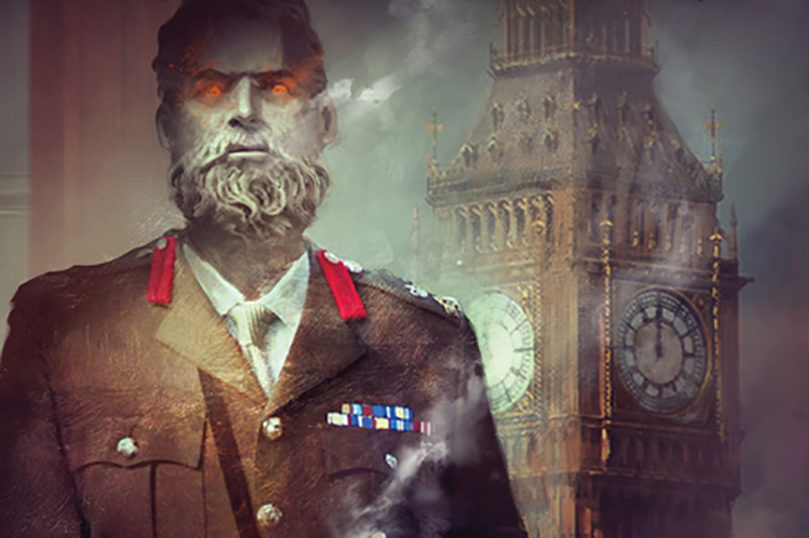





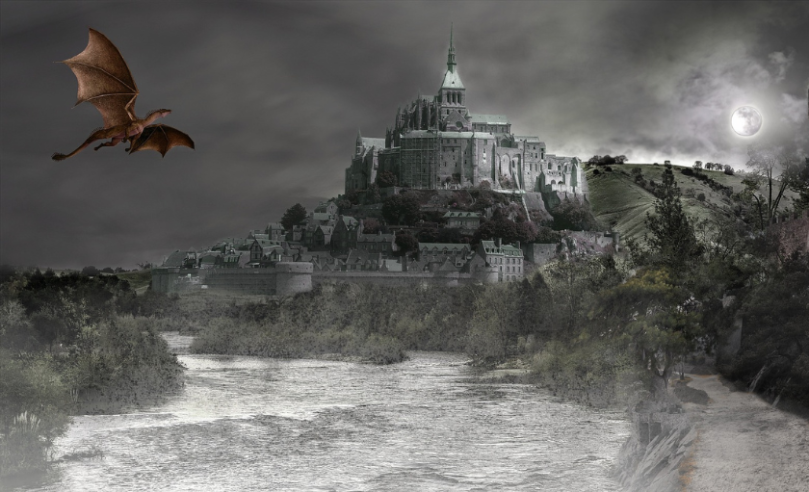
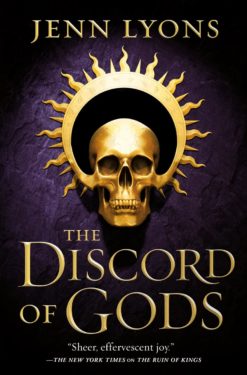
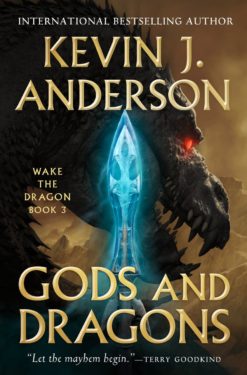
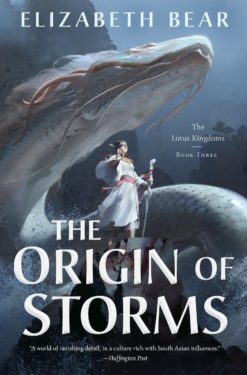
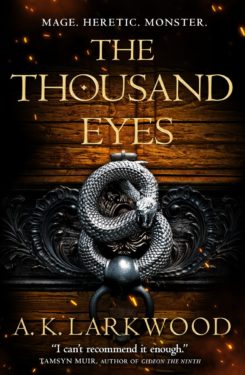
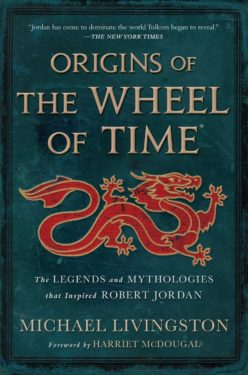 Origins of The Wheel of Time
Origins of The Wheel of Time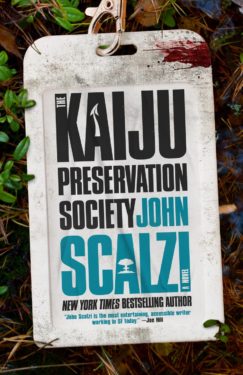
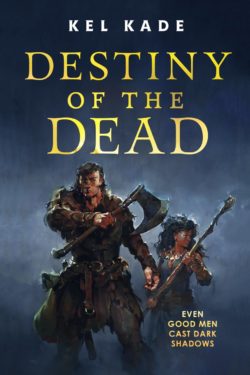
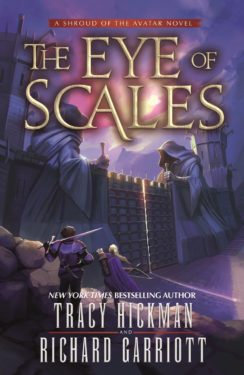

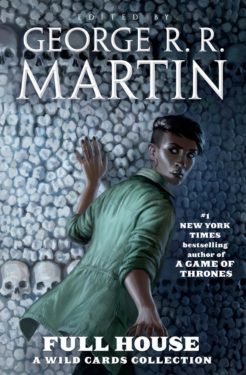


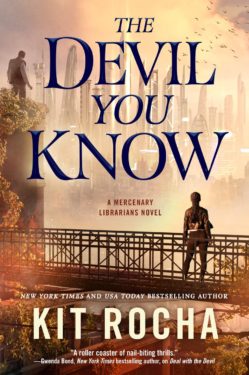





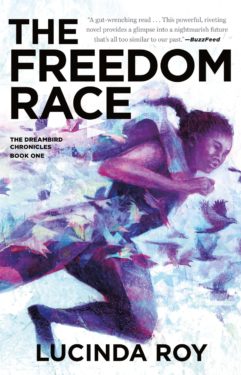

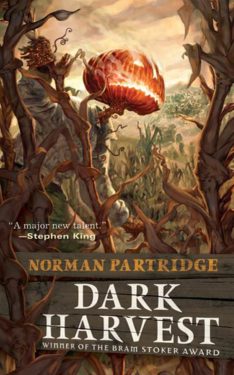

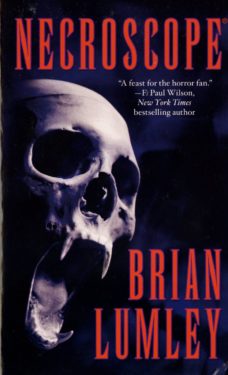
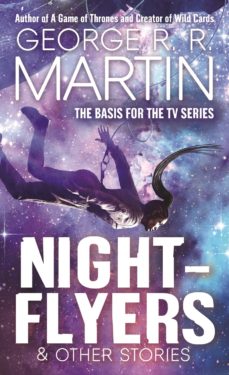

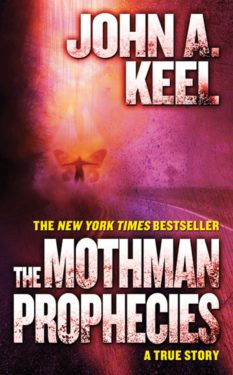

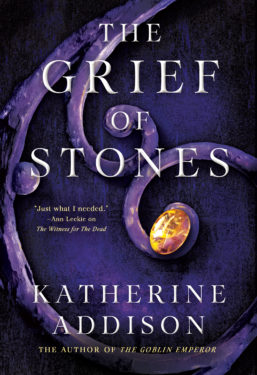 The Grief of Stones
The Grief of Stones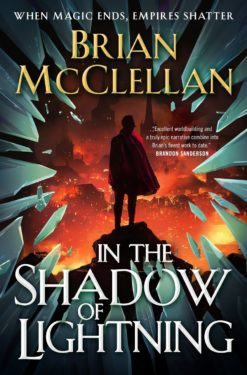 In the Shadow of Lightning
In the Shadow of Lightning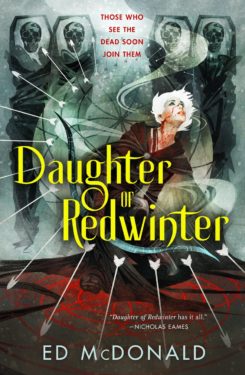 Daughter of Redwinter
Daughter of Redwinter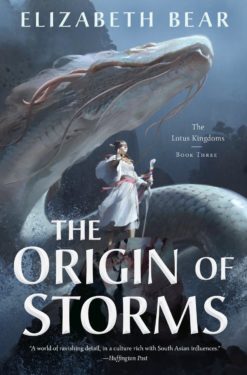 The Origin of Storms
The Origin of Storms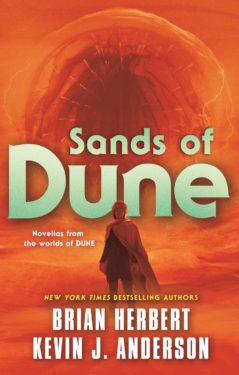 Sands of Dune
Sands of Dune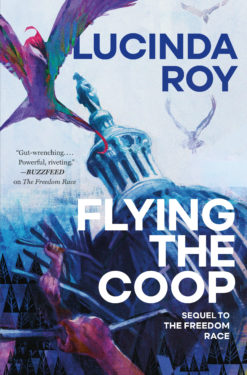 Flying the Coop
Flying the Coop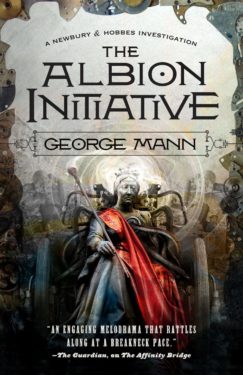 The Albion Initiative
The Albion Initiative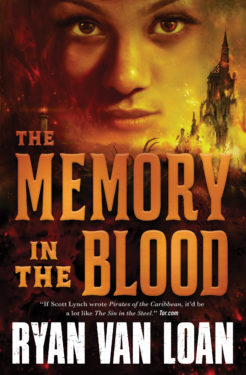 The Memory in the Blood
The Memory in the Blood Mythago Woods
Mythago Woods Just Like Home
Just Like Home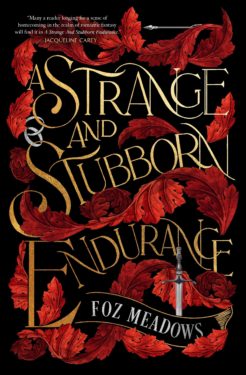
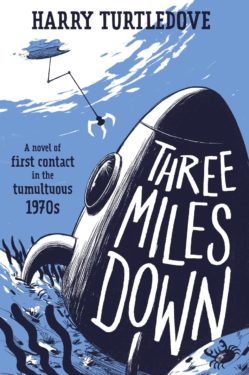 Three Miles Down
Three Miles Down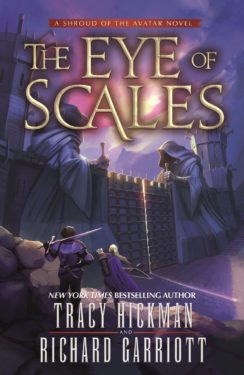 The Eye of Scales
The Eye of Scales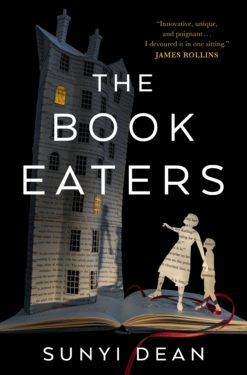 The Book Eaters
The Book Eaters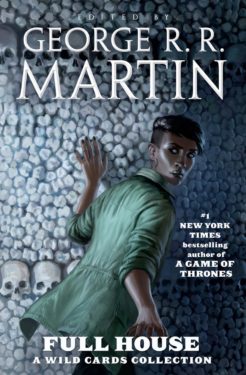 Full House
Full House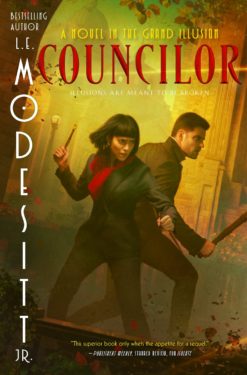 Councilor
Councilor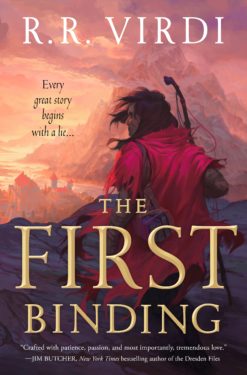
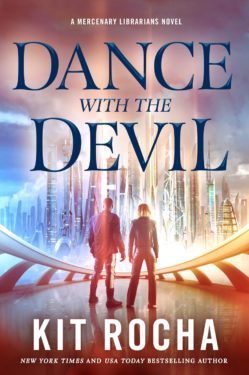 Dance with the Devil
Dance with the Devil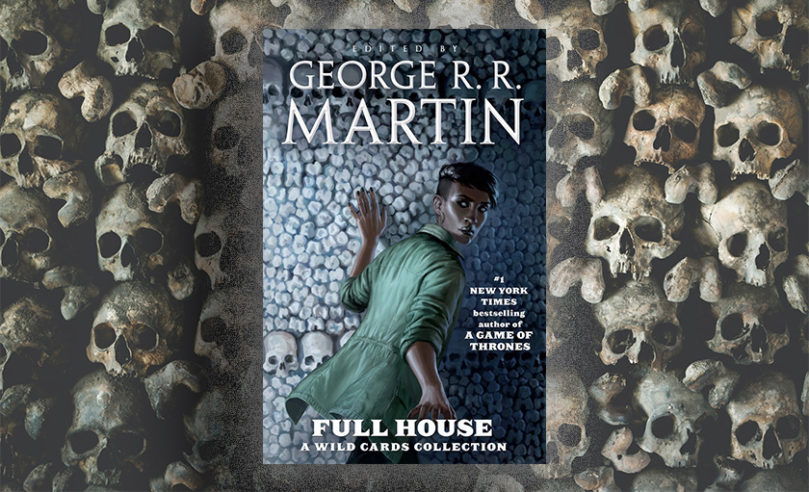

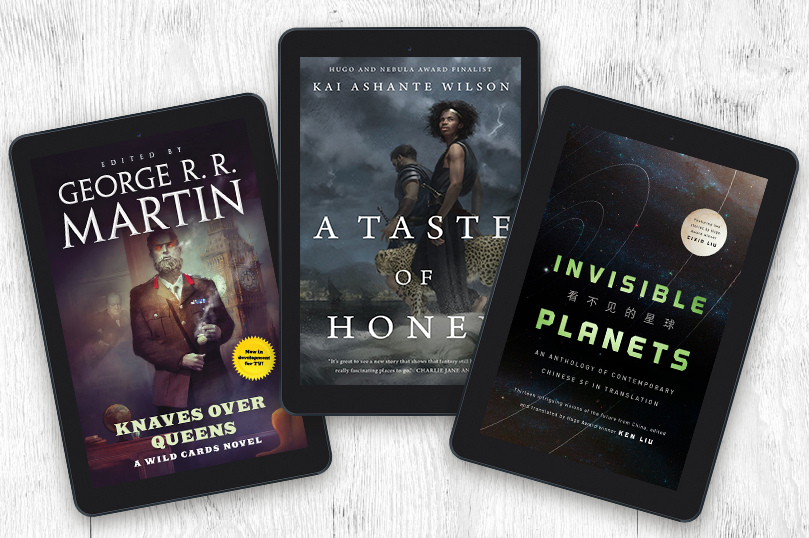
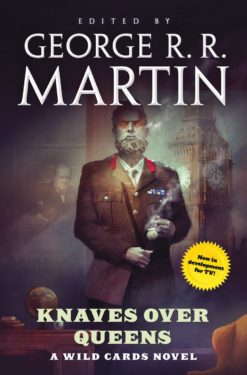 Knaves Over Queens
Knaves Over Queens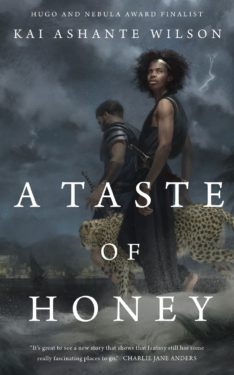 A Taste of Honey
A Taste of Honey Invisible Planets
Invisible Planets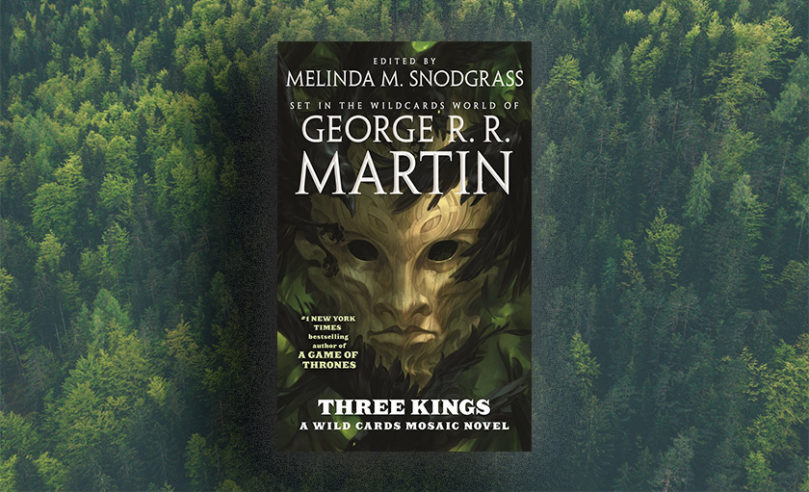
 The next anthology in George R. R. Martin’s ongoing Wild Cards alternate-history series, Three Kings.
The next anthology in George R. R. Martin’s ongoing Wild Cards alternate-history series, Three Kings.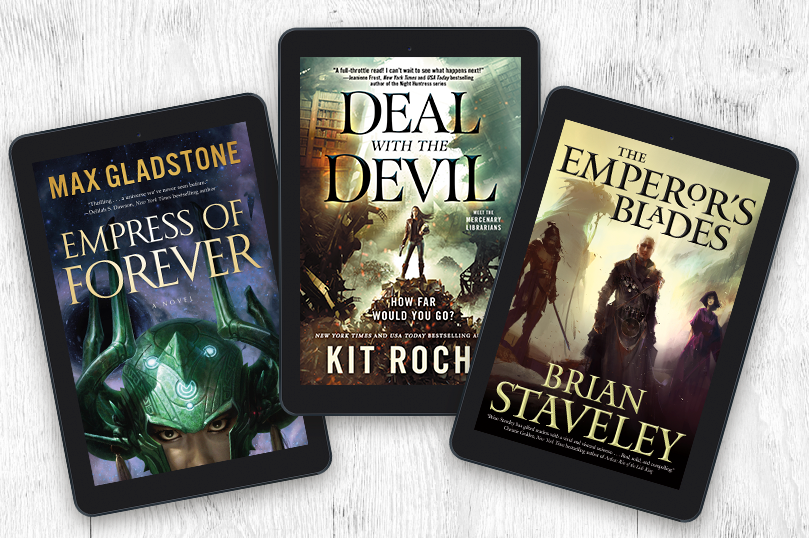
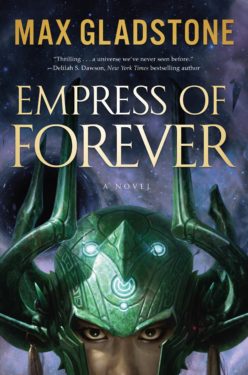
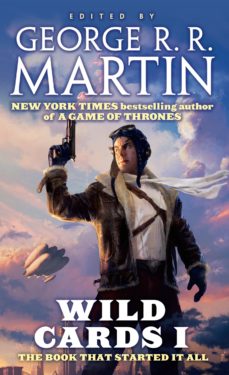 Wild Cards 1 edited
Wild Cards 1 edited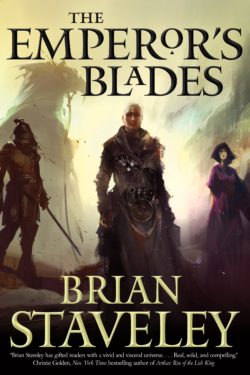 The Emperor’s Blades
The Emperor’s Blades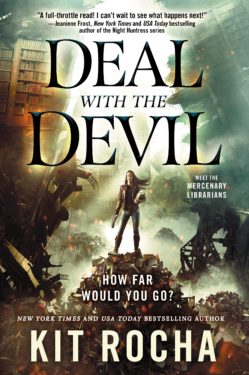 Deal with the Devil
Deal with the Devil
 The Family Plot
The Family Plot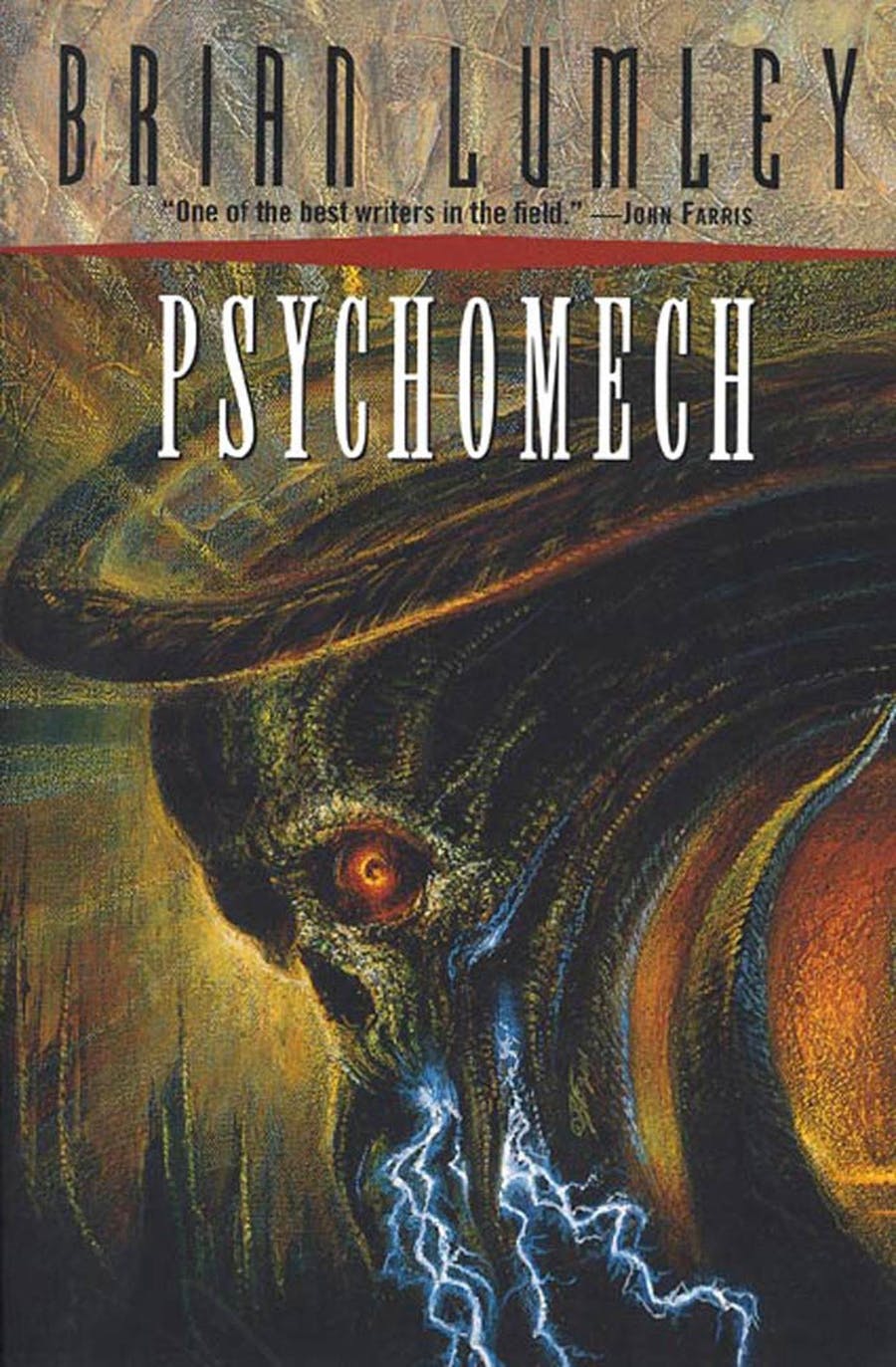
 The Doll Collection
The Doll Collection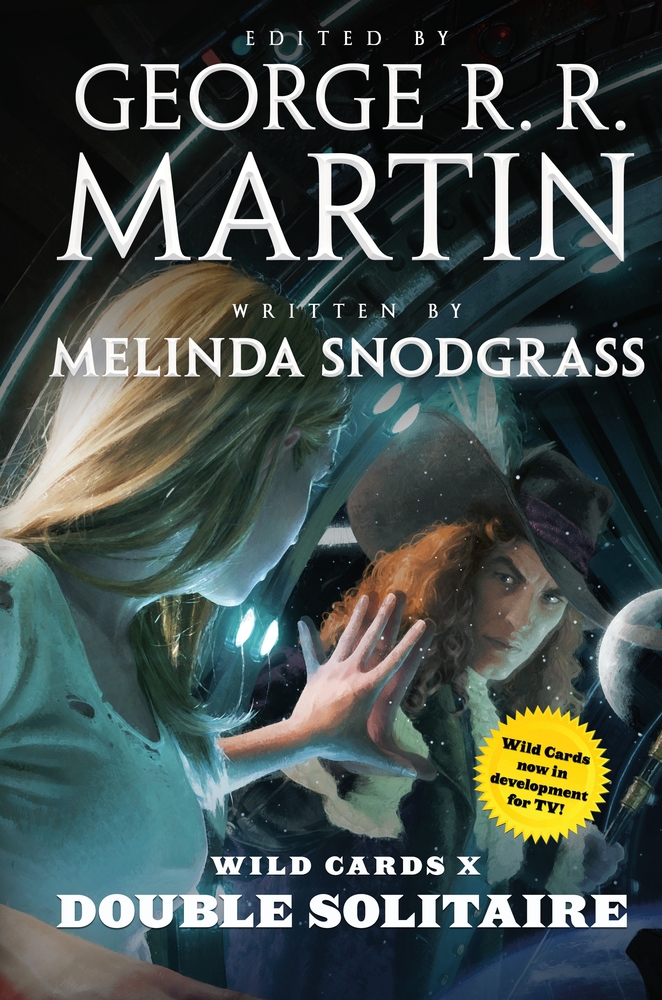
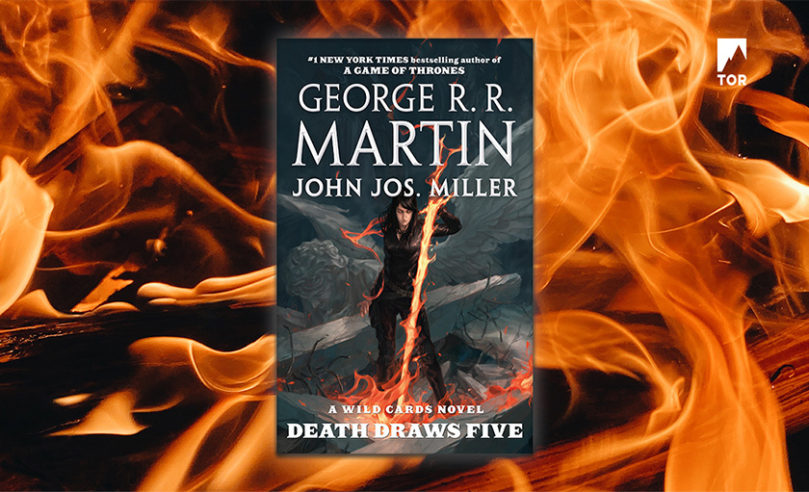
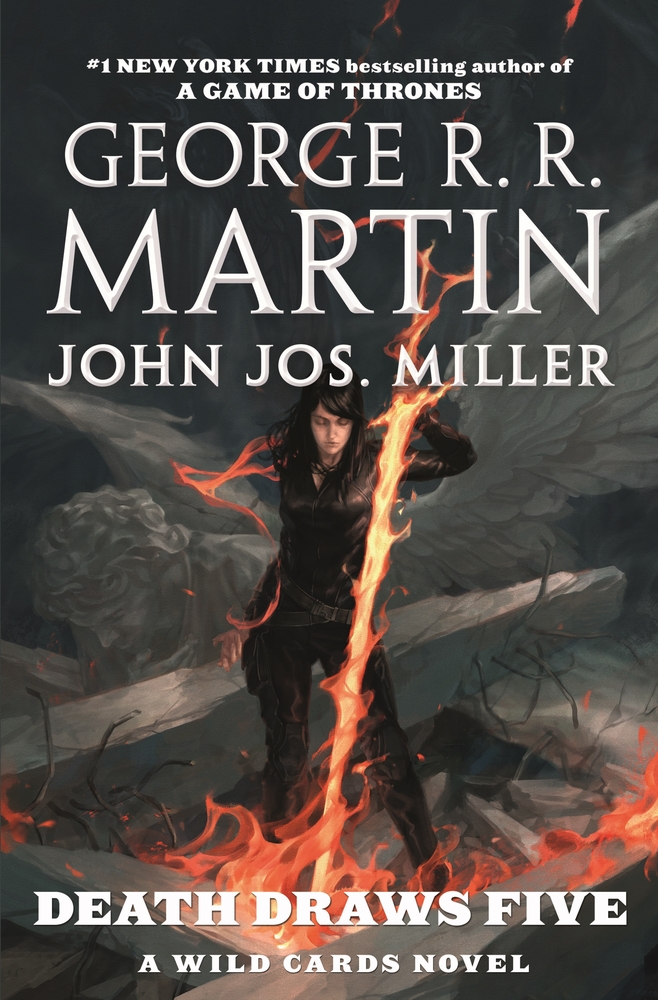 Edited by bestselling author George R. R. Martin, in the next Wild Cards adventure we follow John Fortune, son of two of the most powerful and popular Aces the world has ever seen.
Edited by bestselling author George R. R. Martin, in the next Wild Cards adventure we follow John Fortune, son of two of the most powerful and popular Aces the world has ever seen.